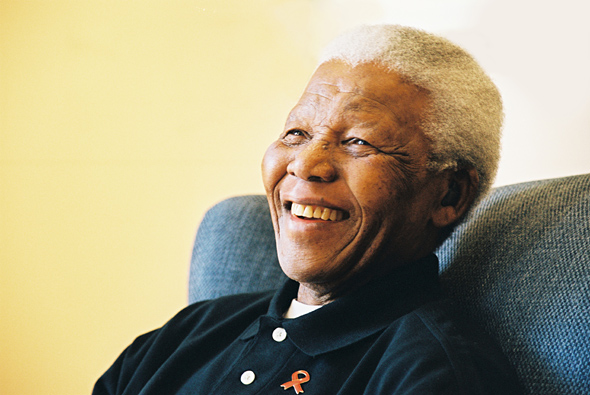
India and Africa journey together on a road paved with trust and friendship — shaped by centuries of shared history, strengthened by mutual respect, and guided by Mandela’s enduring dream of a just, peaceful, and compassionate world. It is a partnership rooted in the struggles for freedom, nurtured through solidarity, and now rising on the promise of a future where dignity belongs to all, voices are heard, and no one is left behind, writes RAO NARENDER YADAV

“Overcoming poverty is not a gesture of charity, it is an act of justice. It is the protection of a fundamental human right, the right to dignity and a decent life.” — Nelson Mandela
As the world marks Nelson Mandela International Day (July 18), his timeless call for justice, dignity, and equality rings louder in a world seeking balance and fairness. This year, the day carries added significance for India-Africa relations, following closely on the heels of Prime Minister Narendra Modi’s landmark visit to Ghana and Namibia — a visit that reaffirmed India’s deepening commitment to inclusive, people-first partnerships across the African continent.
Mandela’s vision — that development must restore dignity, not merely deliver aid — finds meaningful expression in India’s evolving Africa strategy. Whether through healthcare, education, peacekeeping, digital infrastructure or sustainable trade, India’s engagement reflects a shift from transactional cooperation to transformational solidarity. It is a partnership shaped not just by shared interests, but by shared values.
Health and Human Dignity
In the post-pandemic world, Mandela’s vision of health as a human right is more relevant than ever. India has extended critical pharmaceutical support, vaccine supplies, and telemedicine infrastructure to African nations. Initiatives like e-ArogyaBharti and the Pan African e-Network are digital lifelines in underserved areas, ensuring that distance and poverty do not hinder access to care.
Education as Liberation
“Education is the most powerful weapon you can use to change the world,” Mandela once said. India’s scholarships, capacity-building programmes, and technical training for African youth under the Indian Technical and Economic Cooperation (ITEC) scheme echo this ethos. As African nations embrace digital transformation, Indian ed-tech models and skills exchanges are becoming key drivers of youth empowerment.
Peacekeeping and Moral Responsibility
India’s longstanding contribution to UN Peacekeeping Missions in Africa — from the Congo to South Sudan — reflects a Gandhian-Mandelan approach to global citizenship. Indian peacekeepers have not only safeguarded borders but have built schools, clinics, and trust in conflict zones — embodying Mandela’s belief in peace as the product of justice and reconciliation.
Trade with Purpose
India-Africa trade has crossed $100 billion, but its real impact lies in people-centric investments — affordable solar energy, clean water, MSME development, and women’s entrepreneurship. Through lines of credit, grants, and technology transfer, India is investing not just in economies, but in dignity.
The Road Ahead: A Shared Moral Compass
As both India and African nations rise in a multipolar world, Mandela’s legacy serves as a moral compass. At forums like the G20, BRICS, and the India-Africa Forum Summit, there’s growing emphasis on equitable global governance, climate justice, and debt reform — all aligned with the values Mandela championed.
As we pause to honour the life and legacy of Nelson Mandela, his vision lingers like a sacred flame — lighting the path for nations that dare to dream of a world woven with justice, compassion, and belonging. In the quiet strength of the India-Africa partnership, that flame burns bright — not in grand halls or formal words, but in the steady work of healing, teaching, building. Prime Minister Modi’s recent footsteps on African soil echo this shared rhythm — a journey not of fleeting diplomacy, but of kindred purpose. Together, India and Africa walk a road shaped by memory and hope, carrying forward Mandela’s dream — of a world where every life holds worth, every voice finds space, and dignity is the soil from which tomorrow grows.
(Author is Director of New Delhi based think-tank African Centre of India. Views are personal)